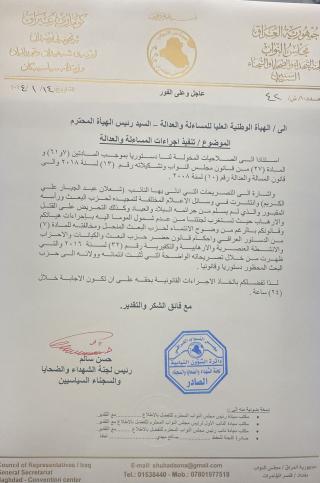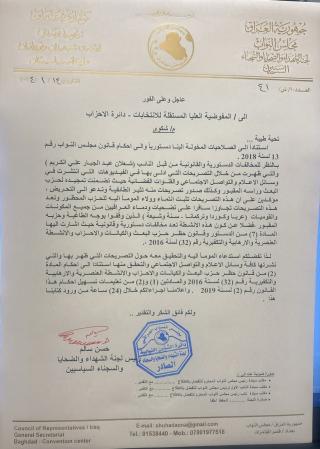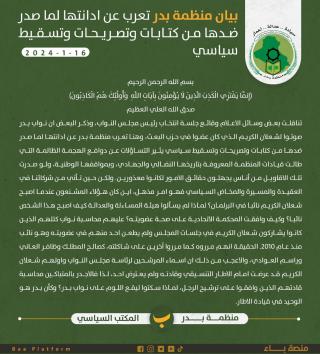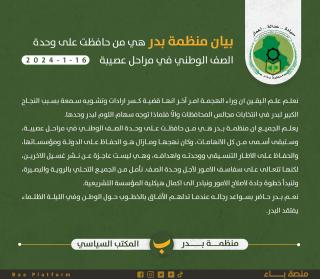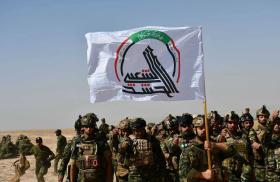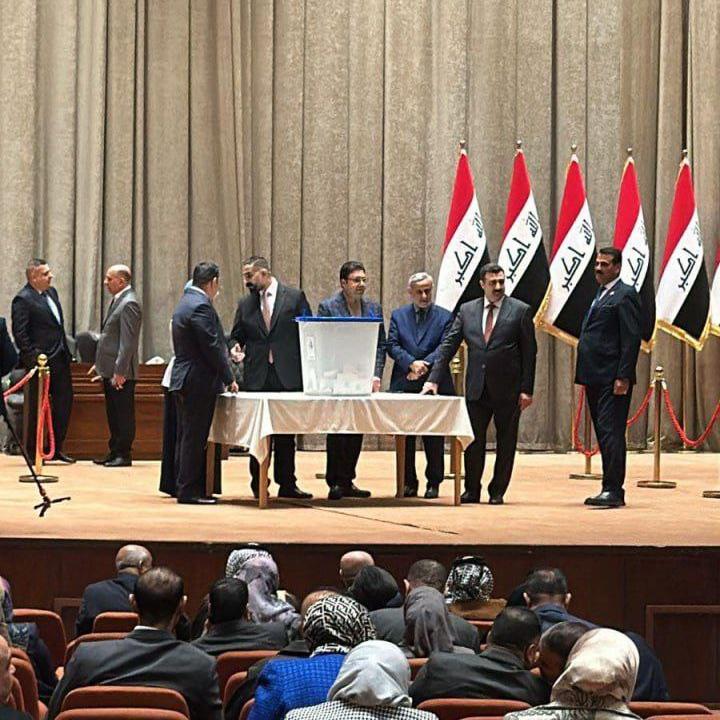
Asaib Ahl al-Haq and Badr Fall Out Over Controlling the New Parliamentary Speaker

AAH conspired with a politicized judiciary to remove the speaker but failed to coordinate the replacement with Badr.
On January 13, the Iraqi parliament convened to elect a new speaker after Mohammed al-Halbousi was ousted through an unprecedented Federal Supreme Court (FSC) ruling issued by Judge Jassem Aboud in November 2023. According to the FSC, Halbousi violated several constitutional provisions related to improper dealing with subordinate members of parliament. The ruling was quite expansive on what comprised a constitutional breach—by establishing that members of parliament could be removed for a wide spectrum of violations, the court provided a formula for ousting most any elected official who draws the ire of the justices or their political patrons.
Also notable was the manner in which the January 13 session descended into chaos due to deep divisions between members of the Coordination Framework (CF), the Shia leadership coalition that oversees Iraqi political factions linked to Iran-backed militias. These fissures came to the fore when it became clear that Halbousi's preferred choice for new speaker, Shalan al-Karim, was likely to win the vote. At that point, acting speaker Muhsin al-Mandalawi halted the process, preventing Karim from assuming the post. Although Mandalawi is a declared independent, he is actually very close to the CF leadership, who tasked him with delivering the speakership to Mahmoud al-Mashhadani, a CF-supported Sunni parliamentarian.
Mashhadani was nominated by Azm, a political alliance that is close to Iran's top militia proxies, with Asaib Ahl al-Haq (AAH) seemingly the main player in the effort to elect him. To block Karim’s appointment, AAH political allies suddenly accused him of promoting the Baath Party in an old video that purportedly shows him glorifying Saddam Hussein. According to Asharq al-Awsat, the video resurfaced on social media shortly before the parliamentary session, indicating that certain actors had already plotted to prevent Karim from becoming speaker in the event he won enough votes.
AAH's Blocking Move
Hassan Salem, a parliamentarian from AAH's al-Sadiqoun bloc, boasted in a post on Twitter/X, “With the efforts of the honorable members of the House of Representatives who reject the return of the garbage of the buried Baath, we were able to postpone the parliament session” (Figure 1).
Salem also was behind two other complaints against Karim. First, he asked the Supreme National Commission for Accountability and Justice (the government's main de-Baathification organ) to take legal action against Karim “within 24 hours” for the alleged crime of glorifying the Baath Party (Figure 2). Second, he addressed a letter to the Independent High Electoral Commission calling for an investigation into Karim’s remarks allegedly glorifying the Baath (Figure 3).
Meanwhile, two other parliamentarians—Falih al-Khazali, a leading member of Kataib Sayyid al-Shuhada, and Yousef al-Kilabi, another so-called independent who is very close to Iran-backed militias—sent a similar complaint calling on the FSC to cancel Karim’s nomination. They also asked to delay the parliamentary session until a judgement about all these accusations is rendered.
Outside the halls of government, AAH launched a virulent media campaign attacking other CF factions who voted for Karim, even accusing their members of accepting bribes from Halbousi. Nouri al-Maliki’s State of Law Alliance, whose members largely did not vote for Karim, was spared from the smear tactics.
To boost this campaign, al-Sadiqoun member Ali Turki went on live media to further discredit the session. In one case, he told Dijlah TV that the vote was a “circus” that “struck a blow against the CF in the eyes of its support base.” He added that the CF needs to “get its house in order.”
Badr Hits Back
These accusations faced backlash from other CF members, particularly the Hikma movement and the Badr Organization, the likely targets of Turki’s slurs. Badr’s political office issued two statements within minutes of the accusations. In the first one, Badr did not deny that its members voted for Karim but asked, “Where were these accusers when Shalan al-Karim became a member of parliament in 2010?...The strange point is that [his] name...was presented to the CF and its leaders, and no one expressed any opposition” (Figure 4).
The second statement was more strongly worded, accusing other militias of jealousy toward Badr’s purported success in Iraq's recent provincial elections: “We know for certain that there is something else behind the attack [against Badr]. It is a case of breaking the will and tarnishing the reputation due to Badr’s great success in the provincial council elections.” The group then threatened to start its own smear campaign and “air other [militias’] laundry” (Figure 5). This statement is very representative of Badr leader Hadi al-Ameri’s punchy style: whenever threatened by his fellow CF leaders, he has a habit of warning them bluntly that he can respond to any attack in a similar manner.

